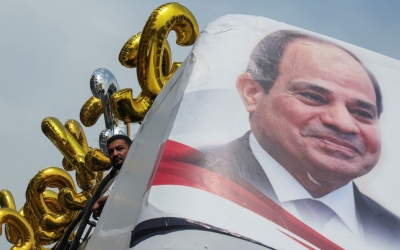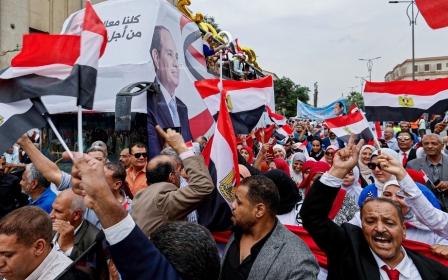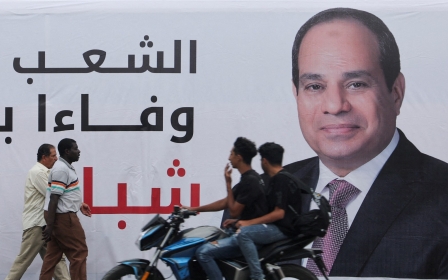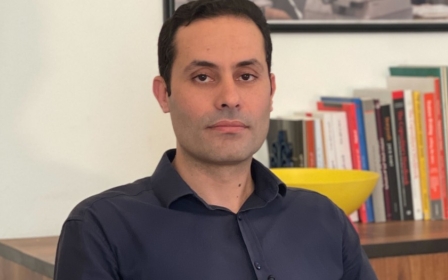Egyptian opposition experiences foul play ahead of presidential election
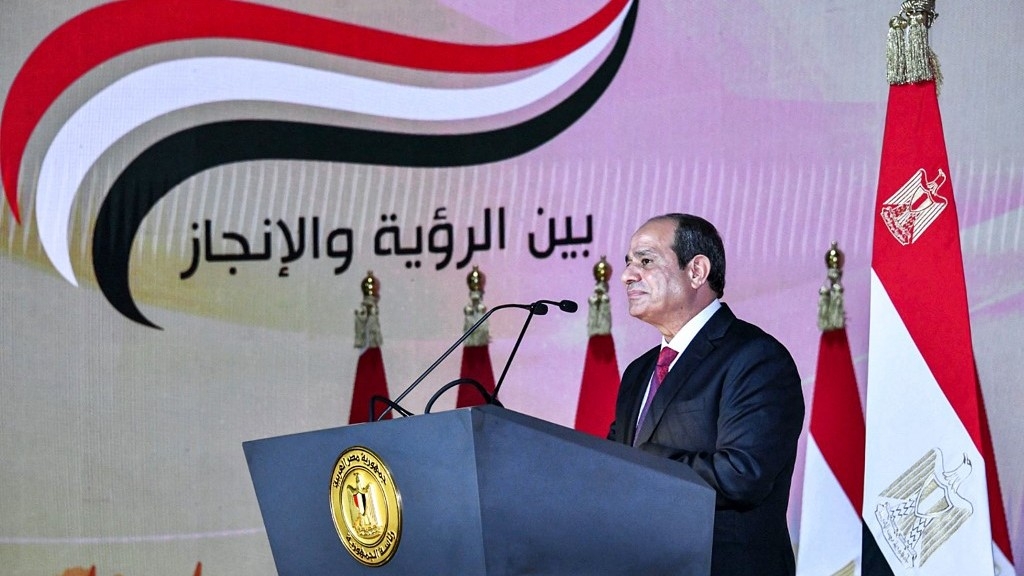
Egyptian opposition parties said on Wednesday that people endorsing opposition party candidates have faced repeated challenges in what appears to be foul play ahead of the upcoming presidential elections.
Those trying to submit endorsements for candidates standing against President Abdel Fattah el-Sisi say they have found public notary offices inaccessible.
According to members of the Civil Democratic Movement (CDM), which unites some of Egypt’s fragmented opposition, some public notary offices have also been armed by pro-government activists or thugs.
Rania el-Sheikh, who tried to register her support, spoke at a press conference in Cairo organised by the CDM, and said she had faced difficulties.
Sheikh said she attempted to register her support for former member of parliament Ahmed Tantawy, but thugs quickly caused a scuffle at the notary’s office and she had her hair pulled by a woman. At the same time, a male colleague was hit on the shoulder.
“In every place, public employees have predetermined reasons: the system is down, the internet isn’t working, the power is cut, your ID card isn’t showing for us,” she said.
Magdy Hamdan, a Conservative Party official, said he was blocked from submitting his endorsement at the first notary’s office, and that when he tried to enter, a second group of men brought in some rubbish collectors and beggars and then sprayed them - and Hamdan - with water.
Egypt’s National Election Authority has responded to the statements by saying that it has carried out investigations into complaints and found them baseless. The authority also said that it has instructed notary offices to extend their hours to give people a chance to register.
Any potential candidate must secure a backing of at least 25,000 members of the public from 15 different governorates, or 20 members of parliament, and register their candidacy by 14 October. The presidential poll is set to take place from 10- 12 December.
'Systematic prevention'
Tantawy, the most prominent figure intending to stand against Sisi, has complained that people trying to register support for him have been blocked and that more than 80 of his supporters have been detained.
Asked for comment, Egypt’s state information service referred to statements by the election authority denying any violations.
Tantawy has regularly posted on social media platforms about the “systematic prevention” and “repression” stopping people from voting for him.
Addressing the Egyptian population and the diaspora, Tantawy posted a video on X, formerly known as Twitter, calling on people to vote for him and also highlighting difficulties people have faced when submitting their votes.
“You now have a big mission to free the Egyptian voice and allow the freedom of expression which has been stifled and stopped as you have seen over the past 10 days,” he says.
Tantawy has previously said that dozens of members of his campaigns, including lawyers, have been rounded up as part of a nationwide crackdown on his supporters. Last month, a report by Citizen Lab showed that Tantawy was hacked by European commercial spyware several times, after he announced his interest in running for the presidency.
Sisi has been president since 2014, a year after he ousted his democratically elected predecessor, Mohamed Morsi, in a coup. He won a second term in the 2018 election in a landslide victory, with 97 percent of the vote, against one candidate, himself a supporter of Sisi, after all serious opposition hopefuls had either been arrested or withdrew from the election, citing intimidation.
Constitutional amendments in 2019 paved the way for the 68-year-old former army general to stand for an additional two terms, as well as extending the duration of presidential terms from four years to six.
The presidential election will take place as Egypt, home to over 109 million people, is in the midst of a severe economic crisis that has seen the Egyptian pound lose half its value against the dollar, leading to record inflation and foreign currency shortages.
Middle East Eye propose une couverture et une analyse indépendantes et incomparables du Moyen-Orient, de l’Afrique du Nord et d’autres régions du monde. Pour en savoir plus sur la reprise de ce contenu et les frais qui s’appliquent, veuillez remplir ce formulaire [en anglais]. Pour en savoir plus sur MEE, cliquez ici [en anglais].


